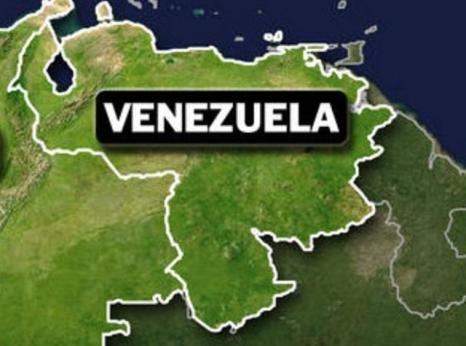Venezuela: Arbitrary Detainee’s Life At Critical Risk

Venezuelan engineer Guillermo Zárraga worked as an operator technician for Petróleos de Venezuela S.A. (PDVSA, the Venezuelan state-owned oil company) at the Cardón Refinery in the Catalytic Complex located in Coro, Falcón state. He was also a leader in the Sindicato Único de Trabajadores (Unique Workers' Union) within that organization. On 14 November 2020, at 3:00 am, he was detained at his residence by officers from the General Directorate of Military Counterintelligence (DGCIM), although DGCIM officers reported that he had been detained on the same day but at the main square in Coro city. According to the indictment by the Public Prosecutor's Office, he has been accused of providing national security information to an American man who had been arrested in September and was believed to be a CIA agent attempting to sabotage the oil industry complex.
In addition to his role as a union leader, Guillermo Zárraga had been photographed with Juan Guaido, a prominent opposition leader. This photograph was included as part of the accusation, serving as evidence of Zárraga's alleged intention to support the sabotage. Despite the fact that Nicolás Maduro’s government has released the alleged CIA agent, Guillermo Zárraga remains arbitrarily detained.
As many imprisoned Venezuelans, Guillermo Zárraga’s family does not have the means to support him in prison, as prison authorities do not provide detainees with adequate sustenance and drinking water, therefore he does not meet his nutritional needs and his health has severely deteriorated in the last couple of years. On 16 May the court ordered his transfer to a medical facility, but penitentiary authorities have not complied with it. Recently, his son Diego Zárraga has reported an arbitrary restriction to access to food, medicines and other basic goods inside of the prison which is making Guillermo’s detention conditions even harder and putting him in higher risk due to his pre-existent health condition.
Nicolás Maduro’s government has continually harassed, prosecuted and censored activists and civil society organizations working to protect the rights of Venezuelans amidst a complex humanitarian emergency and a deep human rights crisis that is making Venezuelans flee in unprecedented numbers in search of safety and protection. By March 2023, over 7.24 million had fled the country.
Since 2020, three reports from the independent international fact-finding mission on the Bolivarian Republic of Venezuela have thoroughly documented hundreds of cases of extrajudicial executions; enforced disappearances; arbitrary detentions; and torture and other cruel, inhuman or degrading treatment committed in the country since 2014; as well as the ways in which the justice system serves as a tool for the government’s policy of repression, and concluded that these grave human rights violations may amount to crimes against humanity.